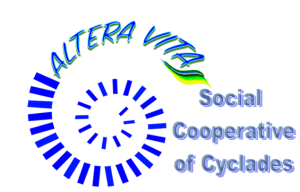1.5.4. I can recognize socially/ethically inappropriate online behaviour and communication such as hate speech, flaming, trolling, cyber-bullying, online stalking etc.

The unethical use of social media has implications for privacy and can result in security breaches both physically and virtually. The use of social media can also result in the loss of privacy as many users are required to provide information that they would not divulge otherwise.
As an effort to reduce the problem in using social media, ethical conduct is needed to prevent from mutually insulting or accusing others of no apparent reason. As a matter of fact, these matters will lead the users into law for being careless in spreading information on the internet.
What are inappropriate online behaviours?
Online bullying. Inappropriate comments (racially or sexually-orientated) Uploading inappropriate material (adult / illegal/anti-social) Accessing inappropriate sites (anti-social or illegal behaviour/adult content) Breaching copyright laws. Pornographic material. Content containing swearing.
- Inappropriate online behavior includes:
- Online bullying /trolling/flaming/stalking
- Inappropriate comments (racially or sexually-orientated)
- Uploading inappropriate material (adult / illegal / anti-social)
- Accessing inappropriate sites (anti-social or illegal behaviour / adult content)
- Breaching copyright laws.
- Pornographic material.
- Content containing swearing.
Trolling - In internet slang, a troll is a person who posts inflammatory, insincere, digressive, extraneous, or off-topic messages in an online community (such as social media, newsgroup, forum, chat room, online video game, or blog), with the intent of provoking readers into displaying emotional responses, or manipulating others' perception. This is typically for the troll's amusement, or to achieve a specific result such as disrupting a rival's online activities or usually manipulating a political process. Even so, Internet trolling can also be defined as purposefully causing confusion or harm to other users online, for no reason at all
Flaming is the act of posting insults, often including profanity or another offensive language, on the internet. It emerged from the anonymity that Internet forums provide cover for users to act more aggressively. Anonymity can lead to disinhibition, which results in the swearing, offensive, and hostile language characteristic of flaming. Lack of social cues, less accountability of face-to-face communications, textual mediation and deindividualization are also likely factors. Deliberate flaming is carried out by individuals known as flamers, which are specifically motivated to incite flaming. These users specialize in flaming and target specific aspects of a controversial conversation.

More Information Here: https://www.pewresearch.org/internet/2017/07/11/other-types-of-negative-experiences-online/
https://www.europol.europa.eu/operations-services-and-innovation/public-awareness-and-prevention-guides/take-control-of-your-digital-life-don%E2%80%99t-be-victim-of-cyber-scams
